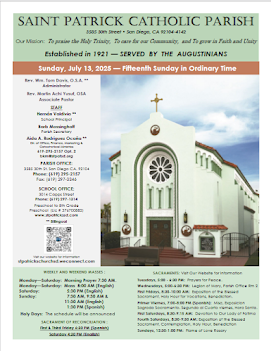Arguing about the Benedict Option—Again
I figured Rod Dreher's new book,
The Benedict Option (CT's edited excerpt is
here, and four online responses are here), would be talked about, but
it has received more attention—and more criticism—than I had imagined. From Twitter wars to
symposiums (BreakPoint, 15 responses; First Things, 19 responses) to live forums and book reviews,
it's been a hot social media topic. Some are panicking about one of his big ideas (strategic
withdrawal)—which admittedly Dreher makes in his usual controversialist fashion. At any rate, many
conversations seem to assume his ideas are new, when actually "Theologians Were Arguing About the Benedict Option 35 Years Ago." And if you count St.
Anthony, it's an idea that goes back nearly 200 years. You know me, always looking for the historical to calm
the hysterical.
| ||
The Turning of the Tide for the Illiberal Colleges?
When a prominent conservative intellectual (Robert P.
George) and a self-described "radical Democrat" (Cornel West) write something together in agreement, we might pay
attention. In this case, they published a statement in support of "truth
seeking, democracy, and freedom of thought and expression." As this article notes,
It's a politely worded denunciation of what George and West call "campus illiberalism," or the brand of thinking that led to this month's incident at Middlebury College, where students prevented an invited speaker from talking and a professor was physically attacked by some who were protesting the invitation.
The Galli Report has linked to commentary on many
occasions, to the point of despair. But this may be a sign that freedom of speech and inquiry might again find a
home in liberal arts colleges.
| ||
Mark of Distinction for CT—I Think
Christianity Today has finally made it.
References in The New York Times, The Washington Post, The Wall Street Journal—yes, they happen
regularly and are all well and good. But The Babylon Bee? That's a mark of influence and prestige. Enjoy their survey of infants on paedobaptism.
What is this being of the community [i.e., the church], this spiritual character, this secret, which is hidden in its earthly and historical form and therefore invisible, or visible only to the special perception of faith? The answer … can only be this: The community is the earthly-historical form of existence of Jesus Christ Himself." —Karl Barth, Church Dogmatics IV I page 661 | ||
Grace and peace,
| ||
| ||
Friday, March 24, 2017
God, the First Feminist
God, the First Feminist
I will admit to being annoyed when I hear people,
men and women, proudly say they are "feminists." You know the word means very little when people of all
persuasions try to own it. Unfortunately, many Christians who label themselves as such have, often
inadvertently, adopted a sub-Christian version of it. Wisely, Wendy Alsup avoids that pitfall and explains
how a Christian—or more particularly, God—is a
feminist. She makes some important distinctions that are well worth pondering. Teaser quote: "We must
note the differences in a secular, modern Western view of feminism and the justice for women that Scripture
models. The fork in the road seems to center on the concept of independence."
(To be fair, it isn't just women who are tempted by
the model of the autonomous self. Men are equally tempted, if not more so—if I may speak for all men
for a moment, as well as autobiographically.)
Subscribe to:
Post Comments (Atom)


























No comments:
Post a Comment